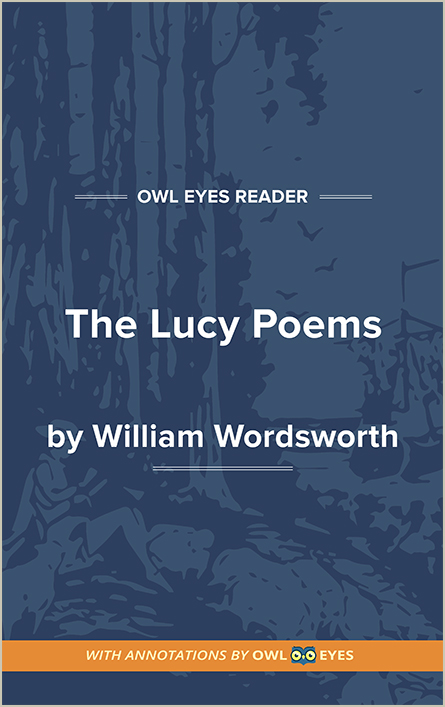Analysis Pages
Themes in The Lucy Poems
Themes Examples in The Lucy Poems:
Strange fits of passion have I known
🔒"In one of those sweet dreams I slept, Kind Nature's gentlest boon! And, all the while, my eyes I kept On the descending moon...." See in text (Strange fits of passion have I known)
She dwelt among the untrodden ways
🔒"She lived unknown, and few could know When Lucy ceased to be; But she is in her Grave, and, oh, The difference to me!..." See in text (She dwelt among the untrodden ways)
"A Maid whom there were none to praise And very few to love...." See in text (She dwelt among the untrodden ways)
"She dwelt among the untrodden ways Beside the springs of Dove,..." See in text (She dwelt among the untrodden ways)
I travelled among unknown men
🔒"'Tis past, that melancholy dream! Nor will I quit thy shore A second time; for still I seem To love thee more and more...." See in text (I travelled among unknown men)
"I travelled among unknown men, In lands beyond the sea; Nor, England!..." See in text (I travelled among unknown men)
Three years she grew in sun and shower (The Education of Nature)
🔒"The memory of what has been, And never more will be...." See in text (Three years she grew in sun and shower (The Education of Nature))
"“And vital feelings of delight Shall rear her form to stately height, Her virgin bosom swell,..." See in text (Three years she grew in sun and shower (The Education of Nature))
"“The floating clouds their state shall lend To her; for her the willow bend,..." See in text (Three years she grew in sun and shower (The Education of Nature))
"Shall feel an overseeing power To kindle or restrain...." See in text (Three years she grew in sun and shower (The Education of Nature))
"“Myself will to my darling be Both law and impulse,..." See in text (Three years she grew in sun and shower (The Education of Nature))
A slumber did my spirit seal
🔒"She seemed a thing that could not feel The touch of earthly years...." See in text (A slumber did my spirit seal)

